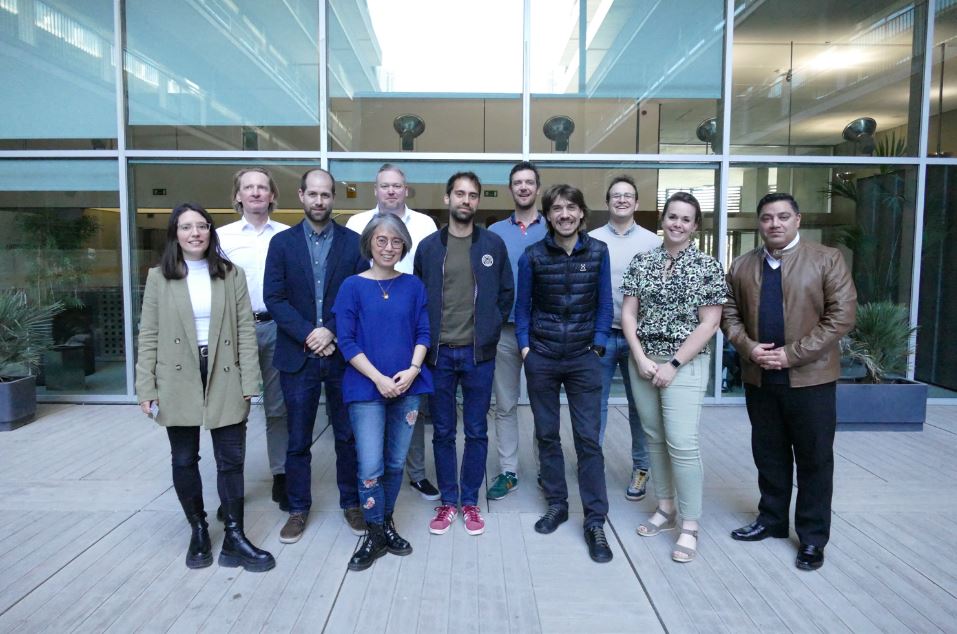Green light for the European project 'SkinDev' to engineer skin microbiomes for detecting and treating skin inflammation.
Green light for the European project 'SkinDev' to engineer skin microbiomes for detecting and treating skin inflammation.
'SkinDev' will last for 4 years and has received 3 million euros in funding. The project is coordinated by the MELIS-UPF Synthetic Biology laboratory and includes five research groups from different European and UK institutions.

The kick-off meeting for the European 'SkinDev' project begins. The project aims to design treatments based on microbiomes with a synthetic biological component to detect and treat atopic dermatitis. The project has received 3 million euros from the European Innovation Council with participating teams led by Rodrigo Ledesma and Reiko Tanaka from Imperial College London; Ellen Van den Bogaard of Radboud University Medical Center, the Netherlands; Bernhardt Homey, from the University of Düsseldorf and Marc Güell, coordinator of UPF's Department of Medicine and Life Sciences (MELIS).
Atopic dermatitis is a chronic cutaneous inflammatory condition characterised by dry skin, the appearance of eczema and severe irritation. It is a multifaceted illness in which various factors interact, such as the immune system, the cutaneous microbiome and genetic and environmental factors. While it can affect people of any age, it is especially common among young children and is the main cause of skin illness.
In order to combat this illness, SkinDev aims to turn the skin microbiome into an engineerable platform. This is why their goal is to modify the Cutibacterium acnes genome, the most common bacteria of the skin. This bacteria has just the right properties to make it a good platform for generating biosensors which allow atopic dermatitis-related inflammation to be detected, as well as for making bacterial actuators which will allow the immune response to be modulated.
In the future we think Cutibacterium acnes will be a Trojan horse. The hope is that it will cease to be a simple probiotic and will allow us to detect and activate treatment where and when needed.
"In this project, Cutibacterium acnes will be our Trojan horse. The hope is that it will cease to be a simple skin probiotic. We will equip it with precise molecular machinery so that it has biosensors to allow us to diagnose the illness, and actuators to apply intelligent therapy. This means that we will be able to detect and activate the treatment with the same bacteria, where and when it is needed," explains Marc Güell, leader of the Synthetic Biology group at MELIS-UPF and coordinator of the project.
SkinDev consists of a well-balanced group of collaborators, with Reiko Tanaka's team specialising in complex skin modelling processes, the teams led by Rodrigo Ledesma and Güell himself in charge of the synthetic biology needed to modify the C.acnes genome; Ellen Van den Bogaard's team will bring their expertise on developing three dimensional skin models and Bernhardt Homey's team will apply their knowledge about atopic anomalies together with a powerful database on the subject.
The project will last for 4 years and has been awarded 3 million euros of funding from the European Innovation Council, which seeks to identify, develop and scale up breakthrough technologies and game-changing innovations. The MELIS-UPF Synthetic Biology laboratory will receive 600,000 euros in order to apply synthetic biology techniques to develop the biosensor machinery and specific actuators for treating atopic dermatitis.
